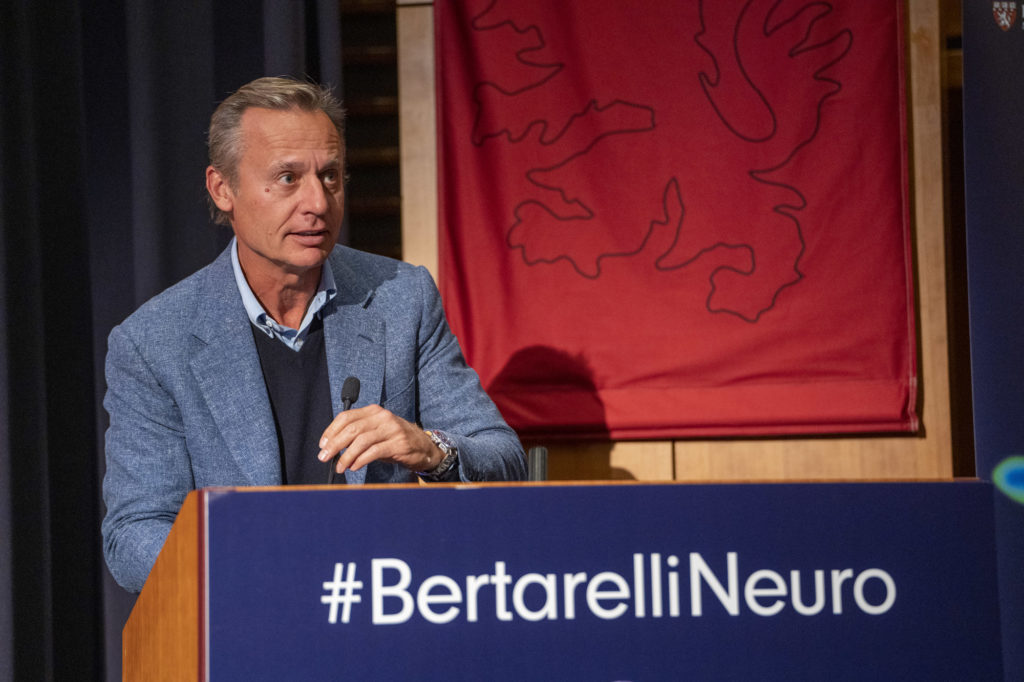On Monday October 17th, the New Research Building at Harvard Medical School (HMS) hosted this year’s Bertarelli Foundation Neuroscience Symposium, which returned as an event for its 9th edition after a three-year pandemic-enforced hiatus.
The theme of this year’s Symposium was Understanding and Conquering Pain, which was put together by HMS Professors David Ginty, Clifford Woolf and Bruce Bean, who together put together a packed agenda featuring neuroscientists from across the US and from Europe.
Having been opened with remarks by George Daley, Dean of the Medical School, the Symposium kicked off with its first keynote lecture, given by David Bennett from the University of Oxford, who gave a fascinating insight into Human Pain Channelopathies. The equally compelling second keynote at the end of the day was delivered by Stephen Waxman from Yale Medical School, whose talk – Huxley’s Science Fiction: Pain, Pain Genes and Pain Resilience Genes – was enthusiastically received by the packed audience. In between those two talks, scientists from HMS, the National Institutes of Health, Vertex Pharmaceuticals, the University of Pittsburgh, MIT, the University of Glasgow and the University of North Carolina, Chapel Hill, addressed topics on pain, from neuronal circuits to the discovery and development of selective NaV1.8 Inhibitors for the Treatment of Pain.

Before a reception for speakers and guests, the Symposium was brought to a close with remarks by Dean Daley, David Corey (the Bertarelli Professor of Translational Medical Science at HMS) and then by the Foundation’s Ernesto Bertarelli, who, in in discussing the importance of the topic of the day said, “pain reminds us of how human we are” and that attempting to understand it better is one of neuroscience’s most important missions. With the research of the calibre that was highlighted at the Symposium, great strides are being made to doing just that.
The Foundation would like to express its thanks to its partner, Harvard Medical School.




